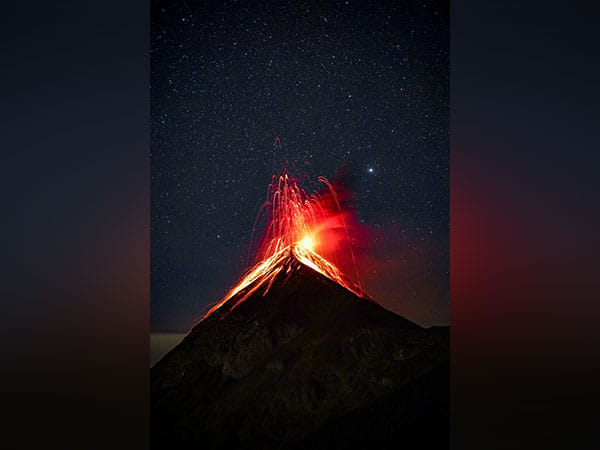Washington [US], September 14 (ANI): Scientists have shed new light on the timing and likely cause of major volcanic events that occurred millions of years ago and caused such climatic and biological upheaval that they drove some of the most devastating extinction events in Earth’s history. Surprisingly the new research suggests a slowing of continental plate movement was the critical event that enabled magma to rise to the Earth’s surface and deliver the devastating knock-on impacts.
Surprisingly the new research, published today in the journal Science Advances, suggests a slowing of continental plate movement was the critical event that enabled magma to rise to the Earth’s surface and deliver the devastating knock-on impacts.
Earth’s history has been marked by major volcanic events, called Large Igneous Provinces (LIPs) — the largest of which have caused major increases in atmospheric carbon emissions that warmed Earth’s climate, drove unprecedented changes to ecosystems and resulted in mass extinctions on land and in the oceans.
Using chemical data from ancient mudstone deposits obtained from a 1.5 km-deep borehole in Wales, an international team led by scientists from Trinity College Dublin’s School of Natural Sciences was able to link two key events from around 183 million years ago (the Toarcian period).
The team discovered that this time period, which was characterised by some of the most severe climatic and environmental changes ever, directly coincided with the occurrence of major volcanic activity and associated greenhouse gas release on the southern hemisphere, in what is nowadays known as the southern Africa, Antarctica and Australia.
On further investigation — and more importantly — the team’s plate reconstruction models helped them discover the key fundamental geological process that seemed to control the timing and onset of this volcanic event and others of great magnitude.
Micha Ruhl, Assistant Professor in Trinity’s School of Natural Sciences, led the team. He said:
“Scientists have long thought that the onset of upwelling of molten volcanic rock, or magma, from deep in Earth’s interior, as mantle plumes, was the instigator of such volcanic activity but the new evidence shows that the normal rate of continental plate movement of several centimetres per year effectively prevents magma from penetrating Earth’s continental crust.
“It seems it is only when the speed of continental plate movement slows down to near zero that magmas from mantle plumes can effectively make their way to the surface, causing major large igneous province volcanic eruptions and their associated climatic perturbations and mass extinctions.
“Crucially, the further assessment shows that a reduction in continental plate movement likely controlled the onset and duration of many of the major volcanic events throughout Earth’s history, making it a fundamental process in controlling the evolution of climate and life at Earth’s surface throughout the history of this planet.”
The study of past global change events, such as in the Toarcian, allows scientists to disentangle the different processes that control the causes and consequences of global carbon cycle change and constrain fundamental Earth system processes that control tipping points in Earth’s climate system. (ANI)
This report is auto-generated from ANI news service. ThePrint holds no responsibility for its content.






